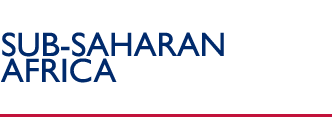 |
USAID's Anti-Corruption Initiative in Africa

The linkage between corruption and poor governance is well established. Corruption undermines the economic and political foundations of a modern state and hinders the growth of trade and investment needed for development. This is particularly true in Africa, where fragile public institutions, weak civil society organizations, the lack of an independent judiciary, inadequately paid civil servants, and hiring and promotion systems that are not merit-based all interact to create a climate in which corruption can flourish. Likewise, limited access to communication technology and independent media in Africa, as well as a lack of modern tools for the management and dissemination of government data, means that citizens cannot hold government officials accountable for their actions. Consequently, a culture of impunity leads to systemic corruption. The burden of corruption falls particularly heavily on African countries that are already burdened by poverty, debt, and poor resource management.
The goal of the Africa Bureau's Anti-Corruption Initiative (ACI) is to reduce corruption in sub-Saharan Africa by addressing the enabling environment for corruption and supporting recent efforts by African leaders to link good governance performance with sustainable development practices. To achieve these goals, the Initiative promotes:
- Public access to information;
- Civic participation in government action;
- Transparent and efficient government procedures;
- Effective government oversight institutions; and
- Public-private dialogue
The Anti-Corruption Initiative capitalizes on USAID's comparative advantage within the development community. Experience has shown that anti-corruption reforms, not unlike other fundamental reforms, require broad partnerships within civil society and with government reformers to effectively advocate for, monitor, and sustain anti-corruption efforts. Programs were designed to build upon these efforts by leveraging limited donor resources, strengthening existing good governance programs, piloting innovative approaches to combating corruption, and contributing to an emerging set of best practices for improving transparency and accountability in Africa.
The Anti-Corruption Initiative is a five-year program that began in 2003. Funding was provided to nine bilateral Missions: Benin, Nigeria, Rwanda, Kenya, Tanzania, Zambia, Mozambique, Madagascar, and South Africa, and two regional Missions. At the Mission level the Initiative has had added value and produced significant results in a number of countries. For example, seven Missions reported measurable impact on the strength of civil society, while several countries are showing modest positive results in the capacity of legislatures to govern. In South Africa, the specialized Commercial Crimes Court, supported through the ACI, has initiated a number of prosecutions and has a strong record of success in these actions. In Kenya, media coverage of both grand and administrative has increased, demonstrating civil societies successful promotion of accountability and transparency.
USAID Anti-Corruption Sites
Back to Top ^ |


